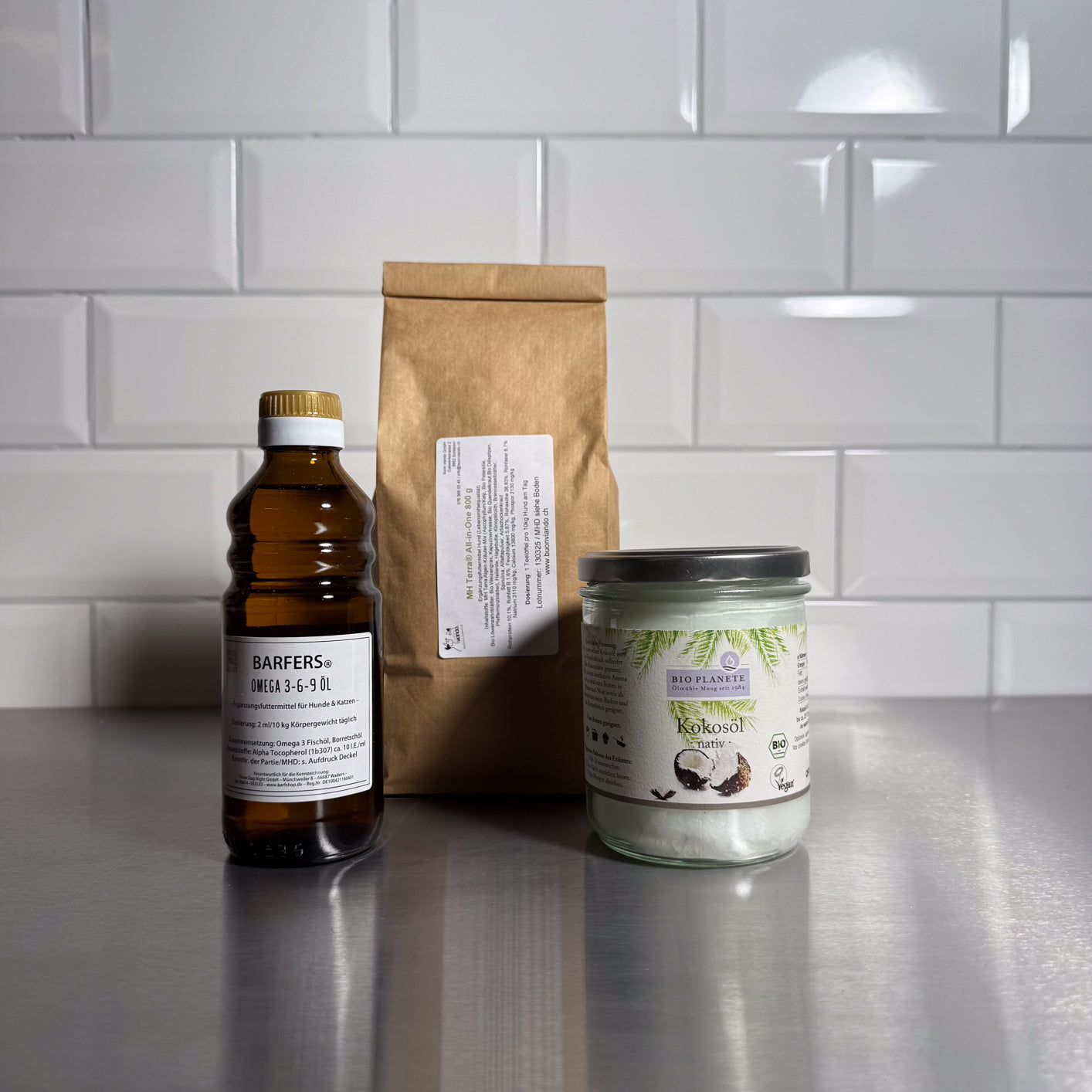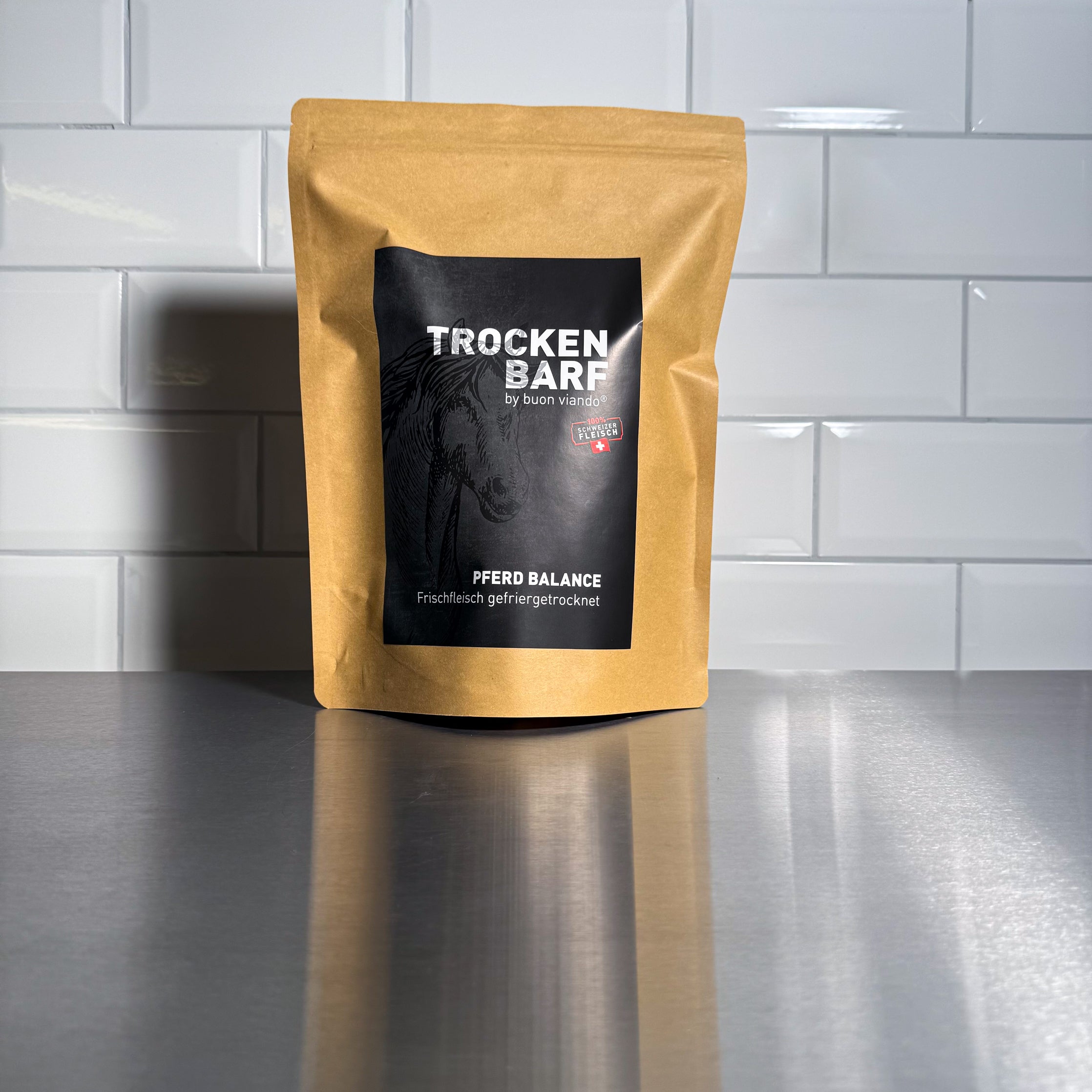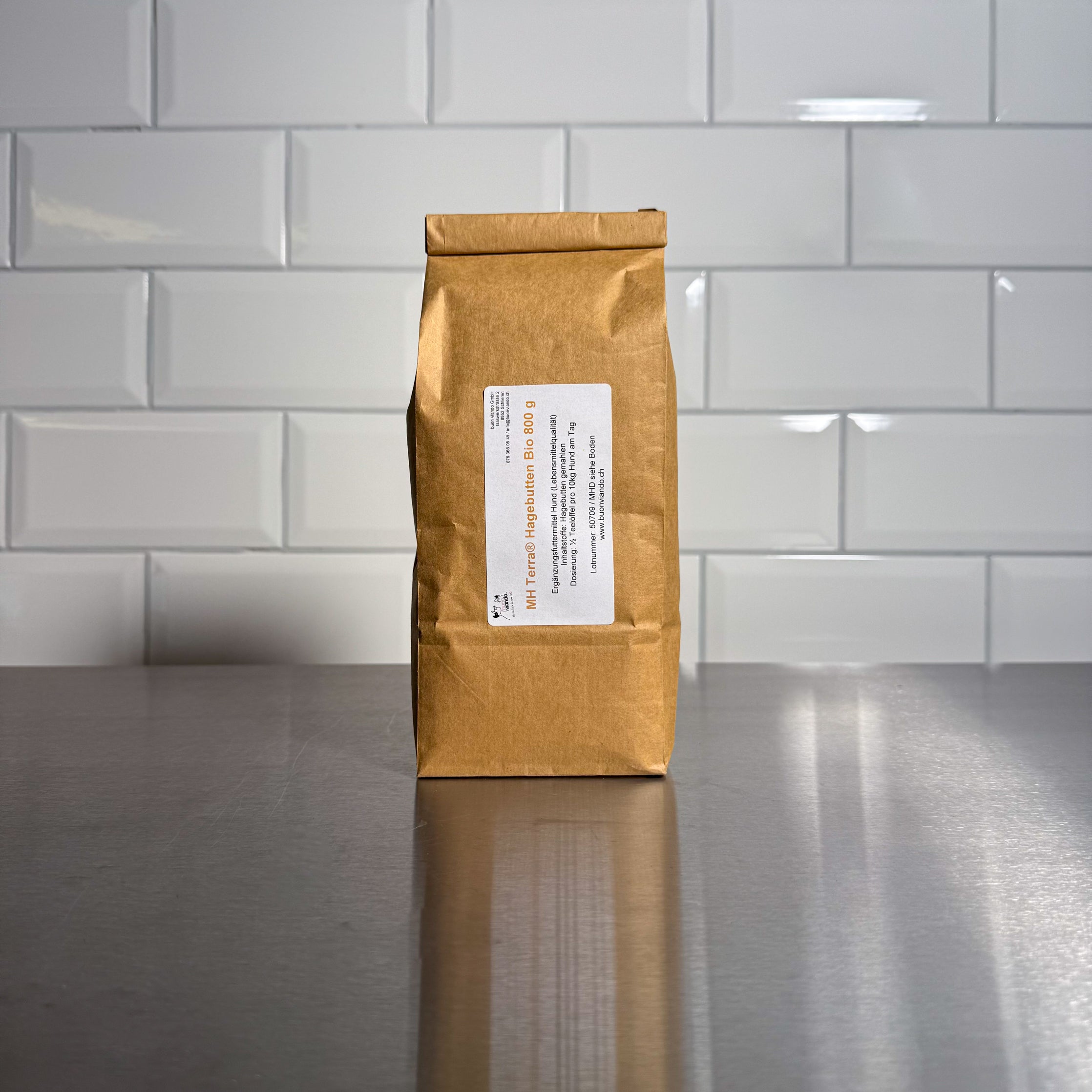What is a rose hip, actually?
The rose hip is the aggregate fruit of various wild rose species – the dog rose (Rosa canina) is particularly well-known. It is usually harvested in late autumn and fed either fresh, dried, or ground. It contains a true powerhouse of natural ingredients.
Important ingredients and their effects
The rose hip is particularly valuable for:
- Vitamin C – in particularly high concentrations. Natural vitamin C has antioxidant properties, supports the immune system, and can have anti-inflammatory effects.
- Flavonoids & polyphenols – secondary plant substances that bind free radicals and thus protect cell structures.
- Galactolipids – particularly interesting in connection with inflammatory processes, such as osteoarthritis.
- Pectins & fiber – good for digestion and the intestinal tract.
For which dogs is rosehip beneficial?
Basically, any healthy dog can benefit from rosehip – whether to support the immune system during the colder season or for joint problems in old age. Rosehip powder has proven particularly effective for:
- Seniors with osteoarthritis or the onset of joint problems
- Sporting dogs to support the musculoskeletal system
- Dogs with weak immune systems or frequent infections
- Barf-fed dogs to incorporate a natural source of vitamin C
Rosehip is a great natural product – but it is no substitute for targeted therapy for serious illnesses.
How do I feed rosehip correctly?
The easiest way to use it is in powder form. This can be added directly to the food. It's important to start with small amounts (e.g., a pinch to 1/4 teaspoon per 10 kg of body weight) to test tolerance – because, as with anything new, sensitive dogs may initially experience softer stools.
And what about cats?
Here's a little "yes and no."
Cats generally don't benefit from rosehips to the same extent as dogs – mainly because they can synthesize most of their own vitamin C. And: Cats are sensitive to certain nutrients. The high fiber and fruit acid content can lead to digestive problems.
Our conclusion for cats: If at all, only in tiny amounts (a pinch!) and in consultation with a nutritionist. For older cats with joint problems, there are often better-tolerated alternatives, e.g., certain omega-3 sources or green-lipped mussel.
Our conclusion
Rosehip is a true natural talent – rich in vital nutrients, well-tolerated, and versatile in its use for dogs. It has proven particularly effective in supporting joints and strengthening the immune system.
For cats, however, caution is advised. Here, the key is to take a close look, weigh up the individual's needs, and opt for alternatives.












